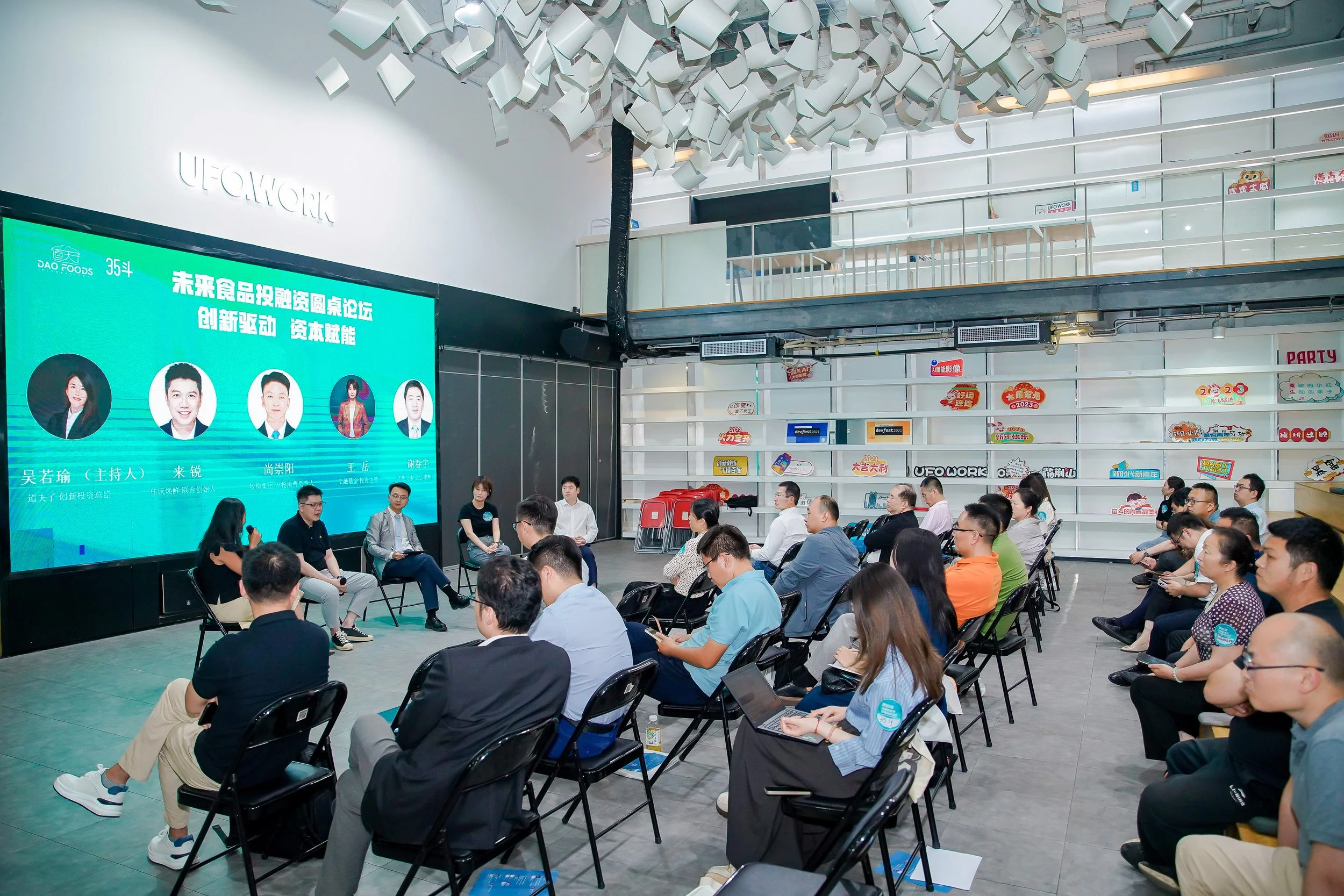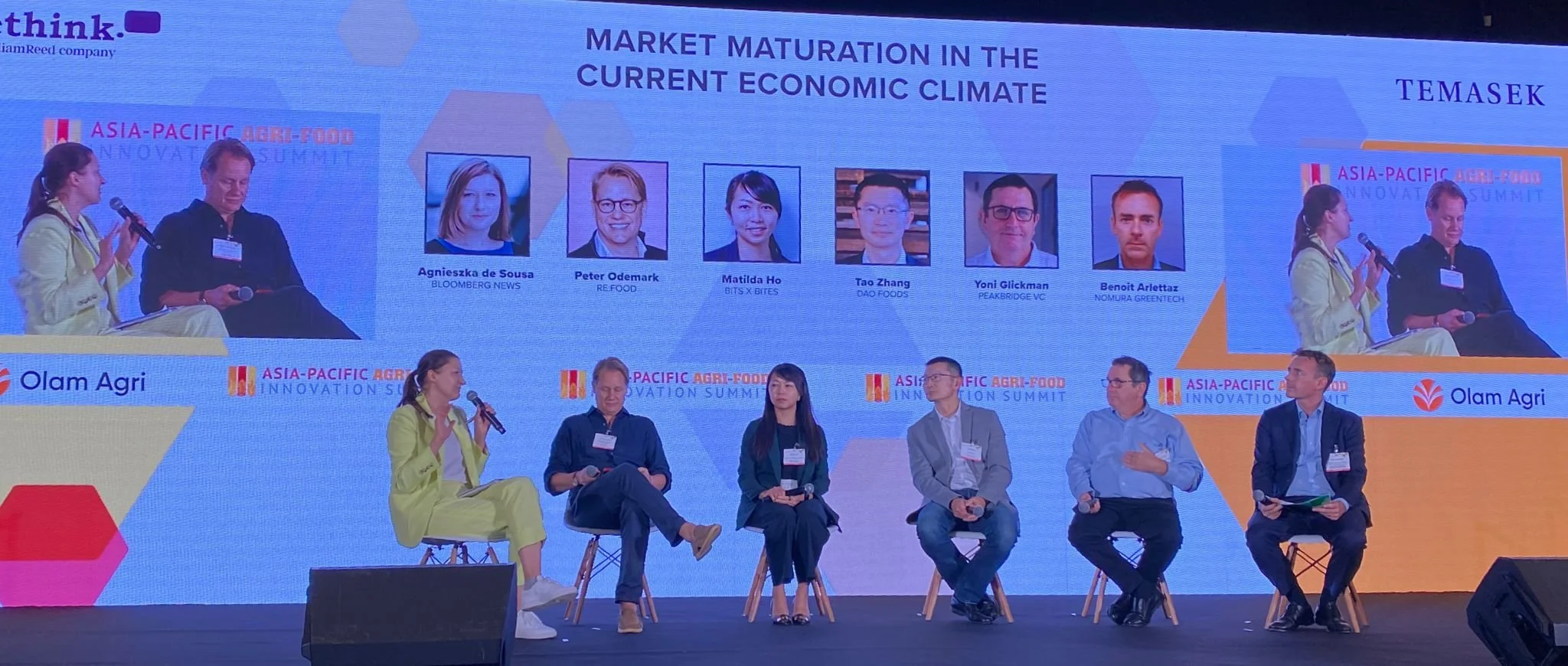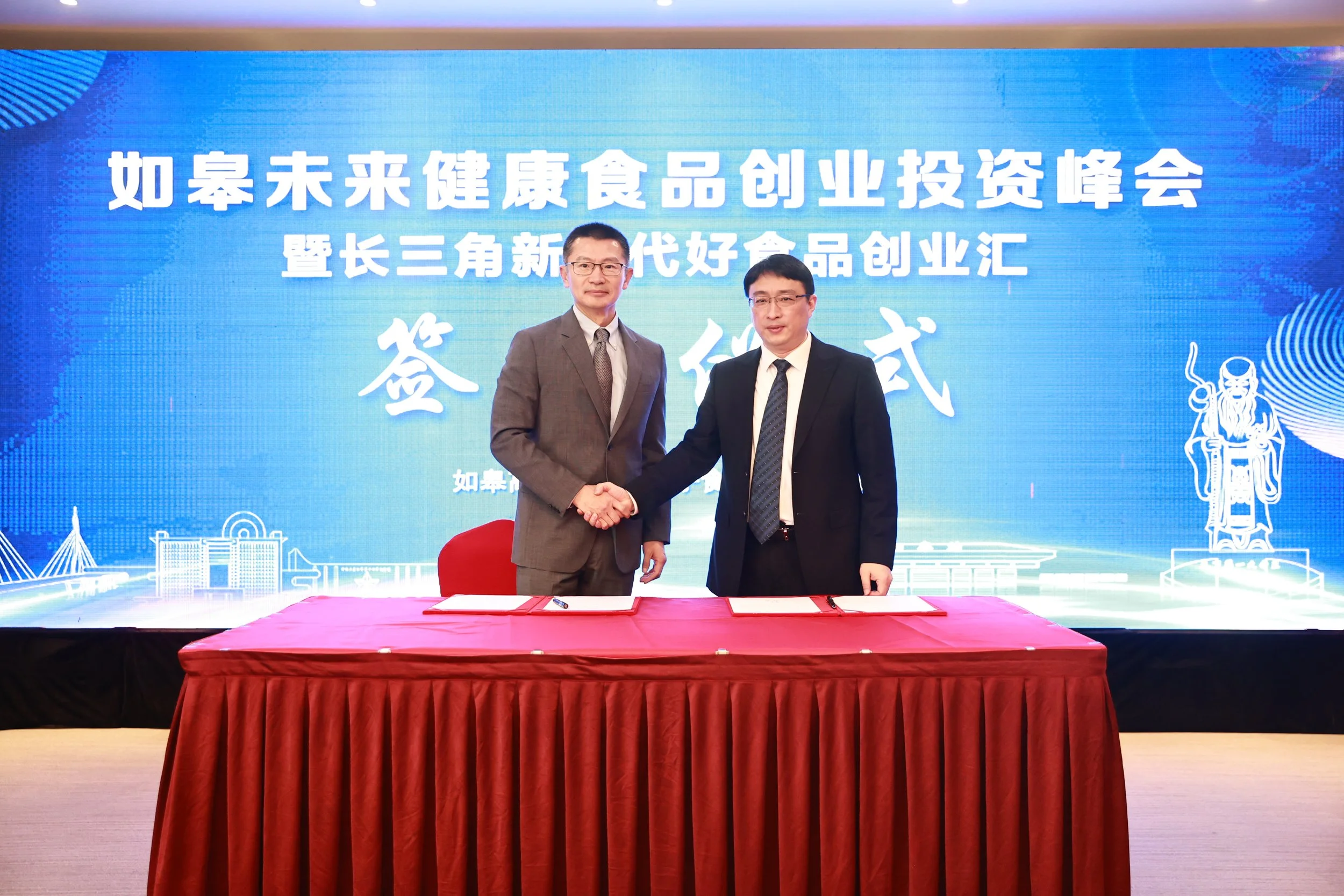Ecosystem Building in China's New Protein Sector: Dao Foods Expands Its Multi-Region Initiative for Greater Impact
This September, Dao Foods will host the 11th China Next-Gen Good Food Bootcamp, marking its first-ever event in Jiaxing, Zhejiang. Jiaxing, strategically positioned along the historic Grand Canal, lies between Hangzhou and Shanghai and serves as a key hub within the Yangtze River Delta city cluster.
At this Bootcamp, Dao Foods is set to sign a strategic collaboration agreement with the Jiaxing government to promote new protein entrepreneurship together via a local center dedicated to it. The event will feature key representatives from the Jiaxing government, the National Center for Food Safety Risk Assessment, the Yangtze Delta Region Institute of Tsinghua University, OATLY, and other key participants. Attendees will share insights on topics such as safety assessments for alternative proteins, advancements in microalgae-based seafood alternatives, OATLY’s groundbreaking innovations in sustainable food practices, and more.
A roundtable discussion will explore the market challenges and opportunities facing both emerging and established companies in the alternative protein sector. Representatives from Ziyan Foods, Unilever, Microfuture Food Bio Technology (a Dao Foods portfolio company), and other key players will participate. As part of Dao Foods' China Multi-Region New Proteins Initiative, the Bootcamp continues to highlight the social impact potential and business opportunities that new proteins present to regional audiences.
In addition to the Bootcamp in Jiaxing, Dao Foods will also host its 10th China Next-Gen Good Food Bootcamp in Shenzhen in the same month, which will focus on synthetic biology, highlighting Shenzhen’s position as a hub for innovation. In collaboration with the Synthetic Biology Network and the Guangdong Biotechnology Industrialization Promotion Council, Dao Foods will explore how synthetic biology and biomanufacturing can revolutionize the future of food, driving industry-wide transformation.
Founding Vision and Ongoing Mission
China consumes 26% of the world’s meat and 45% of its seafood, with pork alone accounting for 43% of global consumption. Yet, on a per capita basis, China’s meat consumption is about half that of the U.S., and milk consumption is even lower, at less than half per person. As rising incomes drive greater demand, these figures are poised to grow.
Between 2020 and 2022, global investments in alternative proteins exceeded $10 billion, but China captured only 3.5% of that, or $362 million, according to AgFunder. This highlights a major opportunity for China to scale up investments in alternative proteins. Chinese consumers have the potential not only to support national environmental goals but also to play a critical role in addressing global climate challenges. In the long term, this also presents a substantial business opportunity.
In 2018, despite global interest and investment in plant-based products, China's market experienced a noticeable absence of new protein companies. Responding to this gap, Dao Foods initiated a grassroots effort to ignite this nascent industry, encouraging entrepreneurs to venture into this field.
Since its debut in Shanghai in 2019, Dao Foods' China Next-Gen Good Food Bootcamp has charted an aggressive five-year path. The focus has been to construct an entrepreneurial ecosystem by launching a series of programs that bring together key stakeholders to propel the industry forward, with new proteins entrepreneurship and innovation at the center. The China Next-Gen Good Food Bootcamp, a flagship initiative of Dao Foods’s ecosystem building and advocacy work, has been hosted in several cities, including Shanghai, Beijing, Chengdu, and the Greater Bay Area encompassing Shenzhen and Hong Kong. The Bootcamp initiative serves as a vital and unique platform for individuals and organizations within the alternative protein industry to establish connections and collaborate, thereby nurturing a dynamic and sustainable industry ecosystem. For 2024 and beyond, Dao Foods has decided to take its ecosystem building work to the next level via its newly-launched China Multi-Region New Proteins Initiative where it plans to expand its stakeholder engagement footprint beyond China’s tier-one cities such as Beijing, Shanghai and Shenzhen.
China Next-Gen Good Food Bootcamp Marks Five Years of Impact in China's Alternative Protein Landscape
1. Product Innovation and Diversity
Since its inception in 2019, the China Next-Gen Good Food Bootcamp has served as a catalyst for alternative proteins entrepreneurship and innovation, initially drawing participants from plant-based meat and dairy alternatives, including notable companies in its portfolio like Starfield and PlantNow!. Expanding its reach, Dao Foods has nurtured trailblazers such as Geb Impact, specializing in microalgae-based proteins, alongside NewDay Farm in the cell-based arena. An exploration into synthetic biology underscores Dao Foods' commitment to diversifying the alternative protein landscape and raising consumer awareness of new proteins products. Over the past two years, as plant-based milk has gained traction in China, Dao Foods has already invested in an extensive portfolio of plant-based dairy products, ranging from plant-based milk to yogurt and from coconut to pea.
2. Geographical Expansion
Originally held in Beijing and Shanghai, the Bootcamp has extended its reach beyond first-tier cities to second and third-tier cities within the Yangtze River Delta, such as Jiaxing, Zhejiang and Rugao, Jiangsu under the China Multi-Region New Proteins (CMNP) initiative launched by Dao Foods. It has also made significant inroads into southwestern China with a Bootcamp in Chengdu, part of the Chengdu-Chongqing Twin City Circle, solidifying its presence in one of China's five major urban clusters targeted by its CMNP Initiative. This strategic expansion highlights Dao Foods' ambition to permeate more cities and regions in the near future for its ecosystem building and advocacy work.
3. Diversification of Participant Backgrounds
Initially, Bootcamp participants primarily came from the plant-based product sectors and restaurant entrepreneurship. The program has since broadened to include a more diverse range of participants, such as China’s largest pig farming enterprise, Muyuan, whose representative expressed interest in protein diversification during the Bootcamp in Zhengzhou. This reflects the growing desire among traditional livestock companies to explore sustainable practices and collaborate with the alternative protein sector. It also highlights the increasing interest from Chinese companies in alternative proteins, with Dao Foods emerging as the preferred partner in this space. The Bootcamp’s impact is further enhanced by the active participation of government bodies and academic institutions, signaling broad-based support for the rapidly expanding alternative protein industry.
4. Broad Geographical Distribution of Portfolio Companies
Mirroring the geographical reach of the Bootcamp itself, Dao Foods' investment footprint has extended beyond metropolitan strongholds to encompass second and third-tier cities as well. Companies such as Zero Limit, a plant-based bakery from Dongguan, and Blue Canopy, a Zhuhai-based precision fermentation firm, exemplify this expansion. The portfolio also includes international endeavors targeting the Chinese market, such as Canada's Liven Proteins and the U.S.-based Upside Foods.
5. Increasing Number of Partners
Evolving from hosting solo Bootcamp engagements, Dao Foods has collaborated with high-caliber entities like the Asian Financial Forum and FBIF, enhancing the scope and impact of these events. Collaboration with major conference organizers such as Bohua and Hi & Fi Asia-China has facilitated the hosting of specialized forums within large-scale expos, attracting tens of thousands of participants. This expanding network of partnerships enables Dao Foods to engage a broader and more diverse audience across China’s and even the global food industry landscape.
Ecosystem Building Impact of Dao Foods
1. Identifying Needs and Gaps
Dao Foods has capitalized on the potential of the alternative protein market, targeting China’s 400 million millennials. With years of in-depth engagement on the ground, the company has gained a detailed understanding of the sector in China. For instance, plant-based milk has been relatively easy to introduce to the Chinese market, delivering a significant impact while maximizing return on investment. Additionally, by monitoring emerging food trends such as "Food as Medicine," Dao Foods has effectively positioned plant-based products for mainstream consumer adoption.
2. Providing Knowledge and Resources to Entrepreneurs
Dao Foods has supported its incubator companies with workshops and mentorship, along with facilitating vital connections to investors. The company has notably assisted ventures like Starfield in forging ties with international brands, helping with its participation in global exhibitions and fostering overseas partnerships. Moreover, Dao Foods contributes to industry knowledge through in-depth research, including a report called The Role of Fermentation in New Protein Adoption in China and an open-source guide entitled China Next-Gen Good Food Startup Manual in collaboration with the Good Food Institute China (GFIC).
3. Establishing Connections with All Parties
a) Governments: Dao Foods exemplifies strategic engagement with governmental bodies through initiatives like co-hosting Bootcamps with the Rugao (Jiangsu Province) municipal government and potentially with the Jiaxing (Zhejiang Province) government in September 2024. Both cities put an emphasis on healthy and sustainable food for the future and attach strategic importance to their collaboration with Dao Foods.
b) Universities: On the educational front, Dao Foods not only leverages academic platforms to disseminate knowledge, but has also proactively sought out entrepreneurs with strong academic background to support, e.g. NewDay Farm founded by China’s leading stem cell scientist Dai Jianwu (Hunan University) and Microfuture Food Biotechnology founded by Professor Zhang Ximing (Zhejiang University). Additionally, leading food scientists from Chinese universities such as Henan Agricultural University, Jiangnan University, Beijing Technology and Business University, Chinese Academy of Sciences, South China University of Technology, Fujian Normal University and Chinese University of Hong Kong have participated in the Bootcamps held in different cities.
c) Chinese and Investors: Over the years of our ecosystem building work, Dao Foods has engaged hundreds of Chinese investors, both financial and strategic, to participate in our Bootcamps and workshops. Starfield, Dao Foods’s first portfolio company in China, successfully received investment from China’s leading VCs Matrix China and Joy Capital after they participated in our Bootcamps in Shanghai and Beijing where they connected with the investors. China’s state-owned industrial guidance funds have also started to send representatives to participate in our Bootcamps in the recent couple years to seek insight and perspectives for potential investments in this field, and numerous Dao Foods portfolio companies have received funding from local government entities and/or government-supported VC fund.
4. Providing Diverse Platforms for Interaction
Since 2018, in addition to our flagship Bootcamp initiative, Dao Foods has curated a variety of convening platforms, from plant-based festivals and online live events to specialized forums at major food conferences, all as part of our ecosystem building and advocacy work. These initiatives have opened extensive channels for dialogues and partnerships across the food industry. On the international front, Dao Foods has continued to expand its global footprint and impact, actively participating in expos and forums across North America, Singapore, Middle East, Europe, and more with the aim of explaining and preaching the outsized role China could play in the global food transformation system, significantly broadening its influence and fostering international collaborations towards this goal.
As Dao Foods continues to develop its alternative protein ecosystem, the company is contributing to steady progress in China’s alternative protein landscape. Through strategic partnerships, a growing portfolio, and engagement with stakeholders across various regions, Dao Foods is helping to shape a more sustainable future.
With increasing demand for alternative proteins and a maturing ecosystem, opportunities for both social impact and business growth are expanding—positioning Dao Foods as a key player in China’s evolving alternative protein sector. As China plays an important role in global efforts to combat climate change, particularly in the area of alternative proteins, we invite you to follow Dao Foods, join the conversation, and support the ongoing transformation of the food system in this important market.





